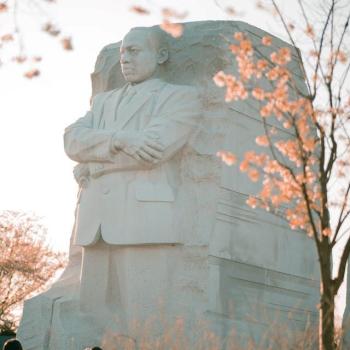To make a long story (and a few years of experimentation) short, I found that in order to transform the deep pockets of grievance, I needed to access the actual feeling of forgiveness, and also the Awareness-Presence, the sense of pure being. The feeling-state softened the heart. The awareness gave me the clarity and detachment to be present with judgment and anger without being run by them.
My tactic for getting access to the feeling of forgiveness was to focus in the heart, and remember the way I had felt about my youngest brother when he was small. From that soft-hearted state, I could observe my own reactive impulses without trying to make them go away, or even trying to change them. Once or twice, I would have vivid experiences of re-entering sharply painful moments of hurt, moments that seemed to come from a time so long ago that I had no words to describe them. And in that soft-hearted state, they'd dissolve. Each time I felt one of these ancient hurts dissolve, I'd emerge with a sense of freedom, as if something had melted one of my deposits of hurt. Awareness combined with soft-hearted feeling has the power to melt grudges.
But the more I practiced forgiving, the more I began to realize that these deep experiences of forgiving were not states I manufactured or willed myself into. Rather, they were true movements of grace.
As with other higher emotions, there are at least three levels of forgiveness. The first level is what we might call Ordinary Forgiveness. The second level is Heart-Based Forgiveness. The third is Oneness-Based Forgiveness. Ordinary forgiveness can be a free pass granted out of sheer wimpiness, as when you decide to overlook someone's bad behavior for fear of losing their affection, or because you feel powerless to stop them. But in its classic form, Level One forgiveness is given in response to repentance or apology or reparation on the part of the offender. In Jewish law, it is said that before a wrong can be forgiven, the offender needs to recognize his wrong-doing, look into the inner dynamics of it, feel genuine remorse, then ask pardon. If he asks three times, the law says, you are obligated to forgive him.
Level One forgiveness can be offered formally, without ever reaching the heart. The second level of forgiveness is more demanding, because it requires empathy. Level 2 forgiveness starts when you are able to recognize the essential humanness of the person you hold a grudge against. Perhaps you recognize that he or she is more like you than not. Perhaps you recognize that she, like you, was looking for happiness. Perhaps you contemplate the situation from his point of view, and ask yourself whether he might have had reasons for doing what he did. Level Two forgiveness asks us to step beyond the default settings of your survivalist ego, and see the situation from a broader perspective.
For me, finding my way to Level Two forgiveness usually starts with some kind of inquiry. I try to look at the unconscious emotional contract I made with the person I'm angry at, the hidden agendas and assumptions that might lie behind my grievance. Dr. Fred Luskin calls these contracts "unenforceable rules."
For instance, I might have made an assumption that if I help X carry through a project, he'll help me the next time I need help, or he'll defend me when the boss gets on my case. In my mind, that's an agreement. But X never agreed to the deal; as far as he's concerned, I helped him out of the goodness of my heart. Or perhaps his assumption is that he deserves help just because he's such a great person. If I can step outside my assumptions and implicit unenforceable rules, I have a chance of seeing the situation from the other person's perspective, and immediately my view is broader and more forgiving.
The classic method for opening up to Level Two forgiveness is to cultivate compassion by imagining what it would be like to be the other person. When Annette began trying to forgive her father, she started by imagining him as a child. She asked herself what kind of upbringing he'd had, what difficulties he'd faced in his life, what disappointments had come his way. In the process, it occurred to her that the reason her father couldn't love her was because he had never really been loved himself. Asking for love from him was probably as pointless as asking for money from the guy looking for handouts on the street. That insight into her father's story let her see, for the first time, that he wasn't a monster, and even to feel the beginnings of compassion for him.
Doing some inquiry can also help you recognize how many qualities we find unforgivable in others are often qualities we reject in ourselves. When I started trying to clear my anger at my childhood friend L., I saw that before I'd ever been a victim of her rejection, I'd visited the same rejection on other people. Usually, they were people whom I saw as nerdy or unattractive, and behind my rejection, nearly always, was fear of being considered nerdy myself. L., I realized, had probably been trying to distance herself from me for a similar reason: she saw in me something she wanted to avoid identifying in herself. There's a powerful boon in recognizing how 'unforgivable' qualities in others mirror the qualities we find 'unforgivable' in ourselves. Forgiveness of someone else can lead us to forgive the grudges we've held against ourselves. It works the other way also: Once we begin owning and even accepting our inner Mean Girl or Manipulative Boss, we often find that the grudges we hold against the Mean Girls and Manipulative Bosses in our life dissolve on their own.





